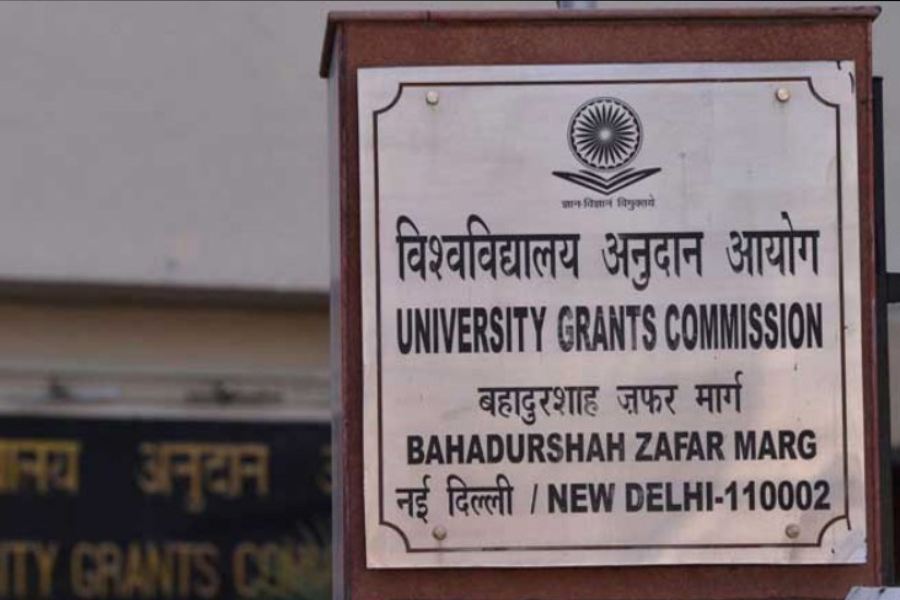Higher education institutions which are less than 20 years old will now be eligible to apply for deemed university status and private universities will have to create executive councils like central universities, according to the University Grants Commission's revised guidelines.
The Centre on Friday released the revised guidelines for existing higher education institutions to get the deemed to be status by simplifying the eligibility criteria in order to establish more quality-focused deemed universities.
Union Education Minister Dharmendra Pradhan released the UGC (Institutions Deemed to be Universities) Regulations, 2023, which will replace the 2019 guidelines.
According to Pradhan, the new rules are built on the principle of a "light but tight" regulatory framework envisioned in the National Education Policy 2020.
"The new simplified guidelines will encourage universities to focus on quality and excellence, strengthen the research ecosystem and have a long-term impact in transforming our higher education landscape. The norms will facilitate creation of many more quality-focused deemed to be universities in an objective and transparent manner," Pradhan said.
The University Grants Commission (UGC) Act provides for the central government to declare any institution other than a university the status of institution deemed to be university. The first set of regulations in this regard was notified in 2010 and these were subsequently revised in 2016 and 2019.
Under the 2019 guidelines, the higher education institutions having "existence for not less than 20 years" were eligible for applying for the status. However, the revised guidelines have now replaced it with multi-disciplinarity, NAAC grading, NIRF ranking and NBA grading.
It means any multi-disciplinary institution having valid accreditation by NAAC with at least 3.01 cumulative grade point average (CGPA) for three consecutive cycles, NBA accreditation for two-thirds of eligible programmes for three consecutive cycles or in the top 50 of any specific category of NIRF for the last three years continuously will be able to apply for the deemed status, the guidelines stated.
Besides, a cluster of institutions managed by more than one sponsoring body or a society can also apply for deemed to be university status, it added.
The new regulations also introduces the "Distinct Institution" category, where an existing institution or an institution starting from the beginning with the focus on teaching and research in unique disciplines and/or addressing the strategic needs of the country or engaged in the preservation of Indian cultural heritage or preservation of the environment or dedicated to skill development or dedicated to sports or languages or any other discipline, so determined by the Expert Committee of Commission, will be exempted from eligibility criteria.
UGC chairperson M Jagadesh Kumar said that the 2023 guidelines are in tune with NEP 2020 and they are light but tight.
"We hope these regulations will encourage many more high-quality higher education institutions to be established in our country in emerging areas to meet the aspirations of our students. Since 'deemed to be universities' wording is part of the UGC Act, 1956, we cannot remove this term at this time. However, it will be removed once the Higher Education Commission of India is established through an act of Parliament,” he said.
There are around 170 deemed institutions in the country currently.
Among other criteria that have been changed are the faculty strength has been increased from 100 to 150, corpus fund for private institutions has been increased from Rs 10 crore to Rs 25 crore, and creation of an executive councils like central universities in these universities as well.
The revised guidelines have also made it mandatory for deemed universities to register on Academic Bank of Credits (ABC). "The institutions can offer twinning programmes, joint degree programmes, and dual degree programmes in accordance with the provisions stipulated in the regulations concerned,” the guidelines stated.
Besides, deemed universities with minimum ‘A’ grade and above or ranked from 1 to 100 in the "universities" category of NIRF rankings of the relevant year are eligible to set up off-campus centres.
"Institutions declared as deemed to be university under a 'distinct category' can apply for off-campus after five years of their declaration if they are accredited with an A grade or figured in the top 100 in the 'universities' category of NIRF,” the guidelines added.
Except for the headline, this story has not been edited by The Telegraph Online staff and has been published from a syndicated feed.











